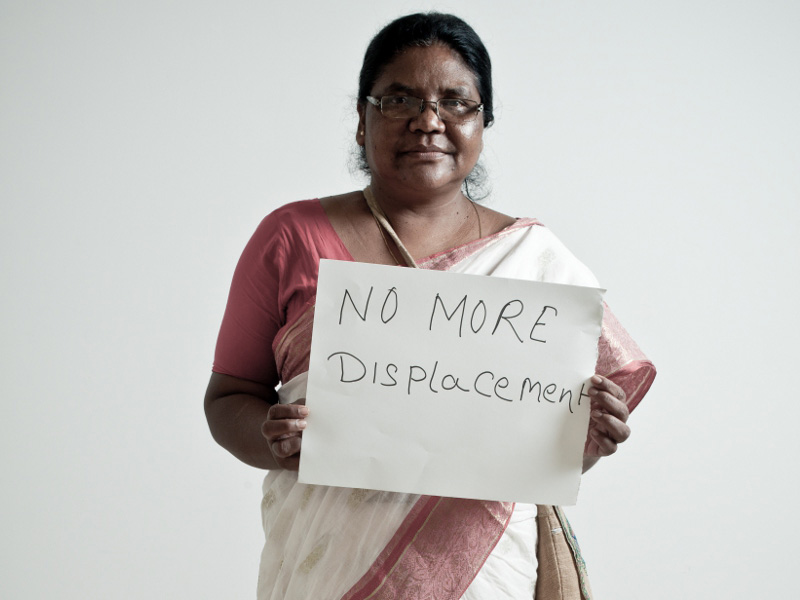National » Other States
Ranchi, May 23, 2013Jharkhand tribal activist gets Ellen L. Lutz Award
/answers Magazine - Is it possible to dance away your fears? Watch video and learn more! siemens.com/answers/capoeira-india
Even as Jharkhand as has witnessed frequent changes in governments and
political leadership in the 13 years since it was formed, there has been
a steady and continuous evolution of people’s movements in different
parts that have raised vital questions about government decisions – what
is the effect on resources, whom will the government decisions benefit
and who bears the costs, does the state government respect the rights of
the poorest.
On Thursday, Cultural Survival, an international Organization , recognized the
work of the leader of several of such people’s movements in Jharkhand -
tribal activist and journalist Dayamani Barla - awarding her the 2013
Ellen L. Lutz Indigenous Rights Award for protecting the rights of
tribals. For this award, Ms. Barla was chosen from among 60
international nominees.
Dayamani Barla, 48, a Munda adivasi has led people’s movements against
displacement for over decade gained prominence when she travelled across
villages in four districts in Jharkhand organizing villagers who were
opposed to giving up their agricultural land for setting up of Arcelor
Mittal’s steel plant over 11,000 acres of land. She led the Adivasi
Moolwasi Astitva Raksha Manch in Gumla and Khunti citing Chotanagpur
Tenancy Act which prohibits sale of tribal land to non-tribals.
Since 2010, Ms Barla led movement in Nagri village, 15 km from Ranchi,
where farmers were protesting against the government’s acquisition of
their farmland for building campuses of the Indian Institute of
Management, the Indian Institute of Information Technology and the
National University of Study & Research in Law. Between October and
December 2012, Ms Barla was in jail in Ranchi for more than two months
after the Jharkhand government accused her in a 2006-case and issued a
property warrant against her for leading a demonstration demanding
MGNREGS job cards and unemployment allowance for villagers in the Angada
block in Ranchi district, and for leading a farmers’ protest in Nagri
village in August that year.
Born in a farmer’s family in Arhara village in Khunti, Dayamani Barla
worked as a domestic help in her childhood cleaning utensils in Ranchi
to support her school education after her family were cheated of their
land by a businessman from a nearby village. She worked as a typist to
support her college education, founded the Jan Hak Patrika, and for some
years reported on rural issues for Prabhat Khabar, a Hindi daily. She
and her husband Nelson now run a tea-shop in Ranchi to support their
public work. “Perhaps this international award will make the government
realize how wrong it was to put Dayamani in jail,” said Nelson, her
husband.
In an email to The Hindu Dayamani Barla shared that while
speaking at New York City on Thursday she planned to share an account of
the 2000 Koel-Karo anti-big dam movement in which eight people were
killed, adivasi farmers’ resistance to giving up farmland for RPG Group
coal mines in Kathikud block of Dumka in which one person was killed in
police firing, the movement against Panem coal mines in Dumka whose
leader Sister Valsa was killed in 2010, and other ongoing struggles over
land in Jharkhand.
“Adivasis’ struggle will transform the current structure of natural
resource ownership and economic inequality into a real democratic
society with diversity, multiplicity and cultural existence of every
community. Adivasi communities have a future also because their basic
social and cultural philosophy, nature and consciousness is linked with
the quest for scientific and new ideas,” she said.


 (April 29, 2013). Grassroots Indigenous rights heroes too often go unrecognized. Yet their efforts to promote the rights of their peoples and protect their traditions, languages, and resources are critical to cultural survival. On April 23, 2013 in recognition of her work with Adavasi (Indigenous) communities in India, Dayamani Barla was chosen by Cultural Survival, an Indigenous Peoples rights organization, as the winner of the 2013 Ellen L. Lutz Indigenous Rights Award.
(April 29, 2013). Grassroots Indigenous rights heroes too often go unrecognized. Yet their efforts to promote the rights of their peoples and protect their traditions, languages, and resources are critical to cultural survival. On April 23, 2013 in recognition of her work with Adavasi (Indigenous) communities in India, Dayamani Barla was chosen by Cultural Survival, an Indigenous Peoples rights organization, as the winner of the 2013 Ellen L. Lutz Indigenous Rights Award.